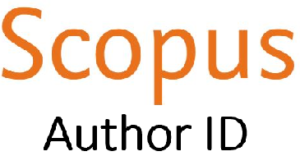Pema Rinchen ![]()
Yebilaptsa Central School, Zhemgang, Bhutan
Received: Feb 5, 2022 / Revised: Feb 20, 2022 / Accepted: Mar 05, 2022
Abstract
Bhutanese principals faced several challenges in course of their jobs. This has led to managerial issues and mismanagement at schools. The impact of principals’ transformational leadership practice on the administration of Bhutanese schools is discussed. The study had three goals: to investigate the impact of principals’ TLP on teachers’ commitment; to determine the impact of principals’ TLP on school physical resource management; and to determine the impact of principals’ TLP on school financial resource management. Transformational leadership theory, which elucidates what leaders do to attain bigger magnitudes of growth in their institutions, served as the theoretical basis. The study employed a descriptive survey research approach. The study’s target population is 10 Bhutanese secondary school administrators (Principals) and 110 teachers. Questionnaires for teachers, focus groups for teachers, and interview schedules for principals were employed to collect data. The research produced both qualitative and quantitative information. The findings demonstrated that principals’ TLP had a favorable link with teachers’ commitment, physical resource management, and instructional material resource management in schools under Zhemgang Dzongkhag. The study’s findings are expected to show that teachers perform better as a result of being motivated, inspired, and appreciated; students perform well as a result of a positive learning environment; and principals have an impact on the commitment of subordinate staff to work and the upkeep of school resources.
Keywords Transformational Leaders, Motivated, Inspired, Administrator, Commitment
How to cite this article
Rinchen, P. (2022). Impact of Transformational Leadership Practice on Management of Secondary Schools under Zhemgang Dzongkhag. Science Archives, Vol. 3 (1), 35-49 http://dx.doi.org/10.47587/SA.2022.3104
References
Abraham, R. (2000). The role of job control as a moderator of emotional dissonance and emotional intelligence-outcome relationship. The Journal of Psychology, 2(4), 169-84.
Alshenqeeti, H. (2014). Interviewing as a data collection method: A critical review. English Linguistics Research Journal, 3(1), 39-45.
Armitage, A. (2007). Mutual research designs: Redefining mixed methods research design. Proceedings of the British Educational Research Association Annual Conference, Institute of Education, University of London. London: Education– Line Database.
Bass, B. M., and Avolio, B. J. (1994). Improving organizational effectiveness through transformational leadership. Sage Publications, Palo Alto, CA.
Bass, B. M., and Avolio, B. J. (2000). Multifactor Leadership Questionnaire. Kedwood city, CA: Mind Carden. Driver, M.J., and Broussea
Bass, B. M. (1985). Leadership and performance beyond expectations. New York, NY: Free Press.
Balc, S. (2017). Educational Management: Science or Art? Rais Research Association for Interdisciplinary Studies, 32-39.
Barling, J., Slater, F., and Kelloway, K. (2000). Transformational leadership and emotional intelligence: an exploratory study. Leadership & Organization Development Journal, 21, 157-61.
Dash, M. & Dash, N. (2008). School Management. Delhi: Atlantic Publishers and Distributors (P) LTD. Davidson, J.A.
McElwee, G. & Hannan, G. (2004). Trust and Power as Determinants of Conflict Resolution Strategy and Outcome Satisfaction. Journal of Peace Psychology, 10(3), 275-292.
Deluga, R. J. (1990). The Effects of Transformational, Transactional, and Laissez Faire Leadership Characteristics on Subordinate Influencing Behavior. Basic and Applied Social Psychology, 11(2), 191-203.
Eisenbach, R., Watson, K., & Pillai, R. (1997). Transformational leadership in the context of organizational change. Journal of Organizational Change Management, 12(2), 80-88.
George, J. M. (2000). Emotions and leadership: the role of emotional intelligence. Human Relations, 53, 1027-41.
Garcia-Morales, V. J., Matías-Reche, F., & Hurtado-Torres, N. (2008). Influence of transformational leadership on organizational innovation and performance depending on the level of organizational learning in the pharmaceutical sector. Journal of Organizational Change Management, 21(2), 188-212.
Grunig, L. A., Grunig, J. E., & Dozier, D. M. (2002). Excellent Public Relations and Effective Organizations. Mahwah, New Jersey: Lawrence Erlbaum Associates, Inc.
Hutasuhut, E. (2019). Effect of transformational leadership of a principal’s management ability on the work motivation of teachers to provide guidance and counseling at senior high schools in Medan, Indonesia. Universitepark Bulten, 8(2), 141-152.
Jung, D. (Don), Wu, A., & Chow, C. W. (2008). Towards understanding the direct and indirect effects of CEOs’ transformational leadership on firm innovation. The Leadership Quarterly, 19(5), 582-594.
Kaval, V., & Voyten, L.J. (2006). Executive Decision-making: Effective Processes for Making and Implementing Decisions. Healthcare Executive, 21(6), 16-22.
Kenneth, S. (2021). Influence of Principals’ Transformational Leadership practice on Management of Public Secondary Schools in Trans-Nzoia Country, Kenya. Unpublished Dissertation.
Kreitner, R. & Cassidy, C.M. (2012). Management (12th ed.). Retrieved from www.valorebooks.com/../9781111221362
Lo, M., Ramayah, T., Cyril, E., & Run, D. (2010). Does transformational leadership style foster commitment to change? The case of higher education in Malaysia. Procedia Social and Behavioural Sciences, 2, 5384-5388.
Moss, H. K., & Kinnear, T. L. (2007). Nothing Can Eliminate Responsibility. SuperVision, 68(1), 3-4.
Mugenda, A. G., & Mugenda, O. M. (2003). Research methods: Quantitative & qualitative approaches. Nairobi: Acts Press.
Nyakan, B. A. (2018). Influence of principals‟ management competencies on supervision of instruction in public secondary schools in Homabay County, Kenya. An Unpublished PhD Thesis, Kisii University.
Orodho, J. A. (2009). Elements of education and social science research methods. Nairobi: Kanezja / Mazola Publishers.
Purvanova, R. K., Bono, J. E., & Dzieweczynski, J. (2006). Transformational Leadership, Job Characteristics, and Organizational Citizenship Performance. Human Performance, 19(1), 1-22.
Palmer, B., Walls, M., Zena, B. (2001). Emotional intelligence and effective leadership. Leadership and Organization Development Journal, 22(1), 5-10.
Robbins, S. P., and Coulter, M. (2009). Management (9th Ed). India: Pearson Education Inc.
Robbins, S. P., and Coulter, M. (2008). Management (8th Ed). India: Pearson Education Inc.
Tatum, B. C., Eberlin, and Kottraba. (2003). Leadership, decision making and organizational justice. Management Decision, 41(10), 1006-1016.
Uko, E. S. (2015). Principalship and effective management of facilities in secondary schools in Cross River State, Nigeria. International Journal of Academic Research and Reflection, 3(1), 64-76.
Vroom, V. (2000). Leadership and the decision making process. Organizational Dynamics, 28, 84.
Wang, X.-H. (Frank), & Howell, J. M. (2012). A multilevel study of transformational leadership, identification, and follower outcomes. The Leadership Quarterly, 23(5), 775-790.
Wilson, L. C. (2003). How and why effective managers balance their skills: Technical, team building, drive. Columbia, Md: Rockatech Multimedia Publishing.
Yan, Y. (2019). The research on teacher-student relationship from the perspective of educational philosophy. Open Journal of Social Sciences, 7(12), 448-459.
Licence Article Metadata
This work is licensed under a Creative Commons Attribution 4.0 International License.
![]()















